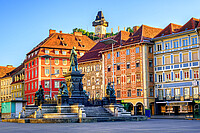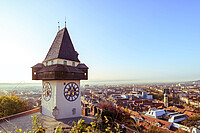
XRD excites: Non-Ambient XRD & Beyond
International XRD Symposium 2024
Event Dates
July 9 to July 11, 2024
Event Location
Graz University of Technology
The event is hosted by the Graz University of Technology and Anton Paar
Background
At the XRD excites: Non-Ambient XRD & Beyond symposium, being held from July 9 to July 11, 2024, in the wonderful Austrian city of Graz, we’ll be discussing the latest advances in the field of powder XRD. We’ll also be celebrating 60 years of non-ambient XRD at Anton Paar with a series of special talks and activities.
Join renowned experts, young researchers, and opinion leaders from the field of XRD at this exciting event.
You’ll benefit from a reduced registration fee if you provide a photo of your non-ambient XRD attachment during registration.
Why Attend?
- Join the discussion on topics related to XRD with internationally recognized scientists, young researchers, and other participants from complementary fields.
- Present your own research and ideas to international participants from a broad range of backgrounds.
- Learn about key research topics that are pushing the boundaries of XRD and how they relate to complementary methods and new application fields.
- Establish contacts, broaden your horizons, and discuss the future of X-ray structure analysis methods.
Symposium Program
The symposium will consist of several themed sessions with keynote speakers, contributed talks, and a poster session with a poster prize.
Key themes
- Non-ambient XRD methods and applications
- Operando battery analysis using X-rays
- Total scattering and PDF analysis of disordered and amorphous materials
- Thin film and surface diffraction/scattering
- SAXS for the study of nanostructured materials
Best poster award
We will recognize the best poster presentation with an award certificate and prize money of 250 €.
Social program
Participants can attend a guided walking tour of Graz’s old city center – a UNESCO heritage site – in addition to a tour of Anton Paar headquarters. A conference dinner for all attendees will be hosted at “Sudhaus,” Anton Paar’s first-class restaurant and brewery located on the company premises, which serves local delicacies alongside a selection of craft beers.
Non-ambient XRD workshop
We will host a workshop focusing on non-ambient XRD applications on Thursday, July 11, in the afternoon. All interested researchers can register at the registration booth during the conference.
Keynote Speakers
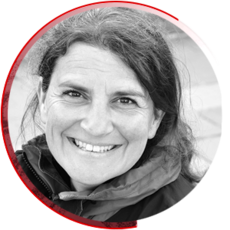
Claudia Weidenthaler
Max-Planck-Institut (MPI) für Kohlenforschung,
Germany
Claudia Weidenthaler has been a Group Leader at the Max-Planck-Institut für Kohlenforschung since 1999. She studied Geology, Mineralogy and Crystallography at the University of Würzburg. After her studies she worked as a scientist at the University of Frankfurt and the University of Bremen. In 2015, she received her habilitation at the University Duisburg-Essen in Modern Powder Diffraction for Crystallographic Studies of Functional Materials. She also worked as a guest professor at the Taishan College, Shandong University / Jinan in 2022, and was officially recognized as “Extraordinary Professor” at the University of Duisburg-Essen. Prof. Weidenthaler has more than 200 publications and over 10,000 citations in her field of research.
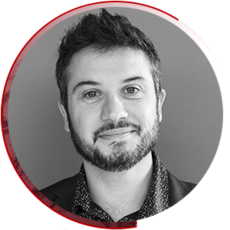
Rémy Guillet Nicolas
CNRS LCS – ENSICAEN,
France
Rémy Guillet-Nicolas received his PhD in Material Chemistry at the University Laval in Quebec, Canada. He spent four years working in industry before going back to academia; first as a research assistant at the Universität Wien, Austria and then as a permanent CNRS CR researcher in Caen, France in October 2020. The main focus of his research is the field of (nano)porous materials with tailored and on-demand physico-chemical properties. His main expertise lies in the accurate characterization of hierarchical and/or complex pore architectures using advanced static and dynamic sorption techniques at high and low pressures. His research also includes developing the fundamental understanding of the synthesis-properties-performance relationship, especially in mesoporous and hierarchized zeolites. Currently, his multidisciplinary research is focused on the optimization, via reverse engineering, of zeolitic materials through cutting-edge characterization. Dr. Guillet-Nicolas is an elected member of the internal board of the AFA and SCF, and he has more than 50 publications and over 2,500 citations in his field.
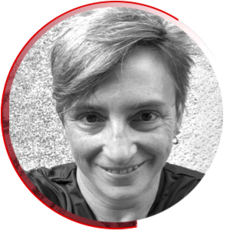
Monica Dapiaggi
University of Milan,
Italy
Monica Dapiaggi is an associate professor in the Department of Earth Sciences at the University of Milano. She has a degree in chemistry and received her PhD at the Department of Earth Sciences (University of Pavia). She headed the Powder Diffraction Laboratory between 2005 and 2015 at the Department of Earth Science at the University of Milano. She has a wealth of experience in powder diffraction, at both room and non-ambient temperature, in the structural refinement of the Rietveld method. She also has long-standing experience with synchrotron radiation facilities, and with thermal and spallation neutrons. Her main interests include disordered materials and amorphous and nano-structures. Dr. Dapiaggi has more than 80 publications and over 1,500 citations in her field.
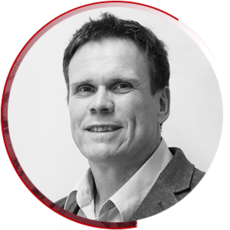
Volker Kahlenberg
University of Innsbruck,
Austria
Volker Kahlenberg is professor of Applied Mineralogy and Crystallography at the Leopold Franzens University Innsbruck, Austria. He received his PhD in Mineralogy and Crystallography at the University of Mainz, Germany. He was president of the Austrian Mineralogical Society (ÖMG) between 2011-2013 and from 2017-2023 he served as a member of the Commission on Inorganic and Mineral Structures at the International Union of Crystallography. His work and research comprise experimental and theoretical studies on structural phase transitions, polymorphism of small molecule and pharmaceutical compounds, crystal chemistry of silicates and oxides, twinning and disorder phenomena in crystal structures, X-ray powder diffraction for quantitative phase analysis, and structure determination from powder diffraction data. Prof. Kahlenberg has more than 300 peer-reviewed publications and over 4,500 citations in his field.
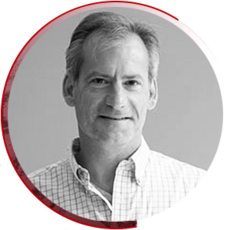
Scott Misture
Alfred University,
New York, USA
Scott Misture has a PhD in Ceramic Engineering from Alfred University, USA. His research group studies the dynamic behavior of oxide ceramics and glasses related to energy conversion and storage devices. Projects generally rely on detailed in-situ characterization using X-rays and neutrons in order to understand the relationships between structure and properties. Currently, the group is focusing on the effects of oxygen partial pressure and humidity on structure, phase stability and conductivity, as well as on various components of solid oxide fuel cells (SOFCs), including the cathode, anode, and cathode-anode interactions. His recent work includes the study of engineered defects for charge storage in batteries and supercapacitors. Prof. Misture has more than 200 publications and over 6,500 citations in his field.
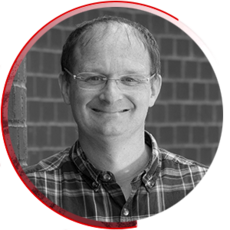
David Walker
University of Warwick,
United Kingdom
David Walker is the facility manager for the X-ray Diffraction Research Technology Platform (RTP) at the University of Warwick. He has 20 years of experience in X-ray scattering techniques, with a background in crystallography and ferroelectric materials. Having been the manager of X-ray diffraction equipment at Warwick since 2008, with the RTP formally founded in 2014, he is responsible for training and assisting users from a wide spectrum of scientific backgrounds to use the equipment independently and to interpret the X-ray data that they collect. With his team, he has a strong track record of working with external companies and other higher education institutions to tackle challenging problems using X-ray scattering techniques. He is available to provide advice and support on all aspects of X-ray diffraction and scattering, in particular on high-resolution diffraction and powder diffraction. Dr. Walker has more than 90 publications and over 1,400 citations in his field.
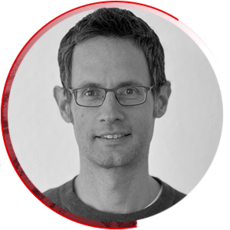
Stefan Weber
AbbVie,
Germany
Stefan Weber studied Applied Chemistry at Hochschule Mannheim and graduated as Dipl. Ing. (FH). For his diploma thesis, he worked on the high throughput manufacturing and characterization of zeolites per XRPD. After graduating, he joined Abbott GmbH where he developed and validated XRPD test methods for early and late phase drug products for over 10 years. Since then, he’s worked at Abbvie Deutschland GmbH and served as a member of the Physical Analytical Chemistry group. Stefan is mainly responsible for special applications like Non-Ambient In-Situ XRD and SAXS for biologics and small molecules.
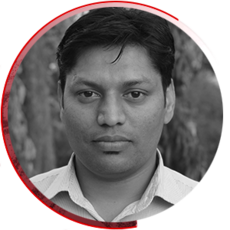
Anil Kumar
Wadia Institute of Himalayan Geology,
India
Dr. Anil Kumar studied Physics, Chemistry and Mathematics and received a PhD degree in Geology at the Wadia Institute of Himalayan Geology. His field of specialization is Quaternary Geology, Sedimentology and Luminescence Dating. He has worked as a Senior Scientist at the Sedimentology Group at Wadia Institute of Himalayan Geology since 2017. Dr. Kumar has more than 50 publications and over 700 citations in his field.
Registration
Registration must be completed online. All participants must be registered to attend the symposium.
In addition to attending talks by invited speakers, participants can submit an abstract, to present their scientific work orally or during the poster session.
If you want to save 60 € on your registration fee, send us a photo of your non-ambient XRD attachment to xrd-excites[at]anton-paar.com, and we will provide a promotion code that can be used during the registration process. In addition, the most creative photo will win a very special prize to be given out at the XRD excites event.
After registering, participants who indicate they would like to give an oral or poster presentation will be contacted by the organizing committee via e-mail for further instructions on how to submit their abstracts.
Please note that your accommodation will not be booked by the organizing committee. Hotels, bed & breakfasts, and apartments can be found on the Graz tourism website.
Registration Deadline
- The deadline for registering and submitting an abstract for a poster presentation is April 30, 2024.
Participation Fee
- Universities, research centers, industry, NPOs: 250 € (190 € with promotion code)
- Students: 160 € (100 € with promotion code)
Registration
Please click on the link below to be transferred to the third-party registration website (registration is handled through Eventbrite):
Location
The XRD excites symposium will take place at Graz University of Technology, Institute of Chemistry, Stremayrgasse 9, 8010 Graz, Austria. The welcome reception and all lectures will be held here.
Graz, Austria’s second-largest city, is home to three universities, and is a bustling center of culture and higher learning. Just a short train ride from cities like Vienna and Salzburg, Graz is a great starting point from which to see the rest of Austria.
Getting here
By airplane
Graz has an international airport, Flughafen Graz-Thalerhof, which can be reached via Frankfurt, Munich, Zurich, Amsterdam, and Vienna.
A train takes you from the airport to Graz’s main train station in about 10 minutes. Taxis are available at the departure gate as well.
By train
Graz’s main station is well-connected to the center and other parts of the city, and a number of buses and tramways take you downtown.
Austrian trains (ÖBB)
Public transport in Graz (GVB)
By car
From Vienna (AT), via A2 in the direction of Graz. The distance is approx. 200 km and it will take you about 2 hours.
From Munich (GER) via A8, A9. The distance is approx. 388 km and it will take you about 4.5 hours.
From Maribor (SLO) via A9. The distance is approx. 68 km and it will take you about 1 hour.
From Zürich (CH) via A96, A995. The distance is approx. 700 km and it will take you about 8 hours.
Scientific Committee
Bernhard Gadermaier, TU Graz (Austria)
Frank Uhlig, TU Graz (Austria)
Barbara Puhr, Anton Paar GmbH (Austria)
Andrew Jones, Anton Paar GmbH (Austria)
Organizing Committee
Monika Filzwieser, TU Graz (Austria)
Barbara Seibt, TU Graz (Austria)
Linda Künstl, Anton Paar GmbH (Austria)
Heiner Santner, Anton Paar GmbH (Austria)
Get in touch: xrd-excites[at]anton-paar.com


